| DATE | VENUE | MAIN BAND | SUPPORT | AD | TICKET | PICTURES | TAPE |
| October 30, 2001 | Providence Civic Center | U2 | Stereophonics | YES | Set List |
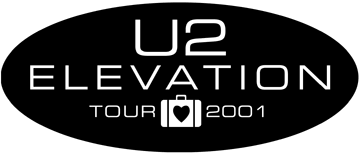
ELEVATION Tour 2001
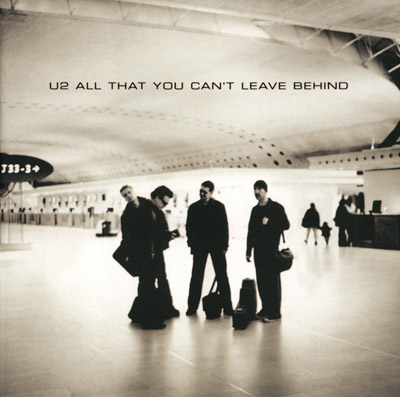
| DATE | VENUE | MAIN BAND | SUPPORT | AD | TICKET | PICTURES | TAPE |
| October 30, 2001 | Providence Civic Center | U2 | Stereophonics | YES | Set List |
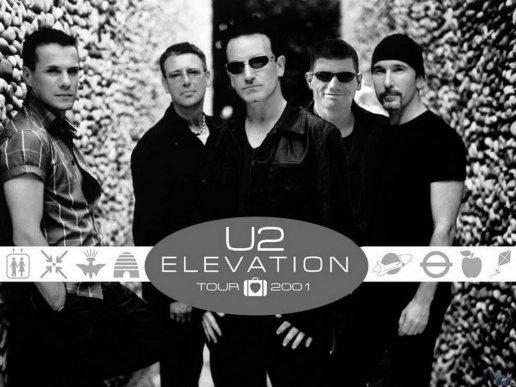
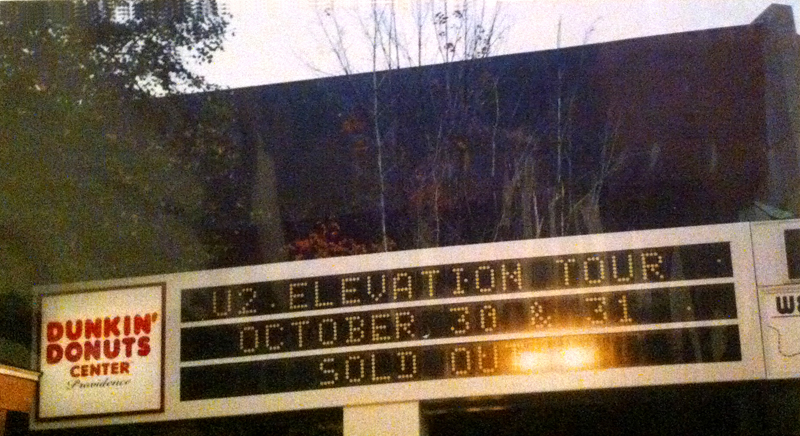
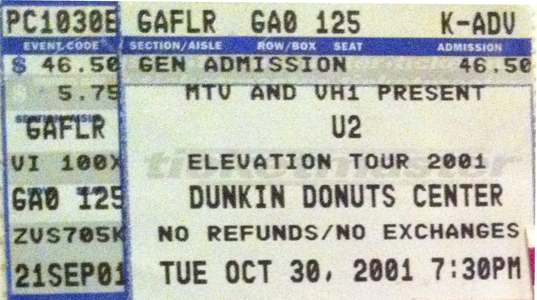
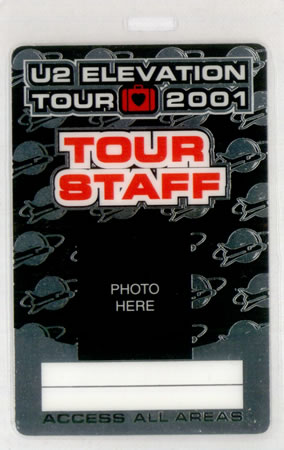
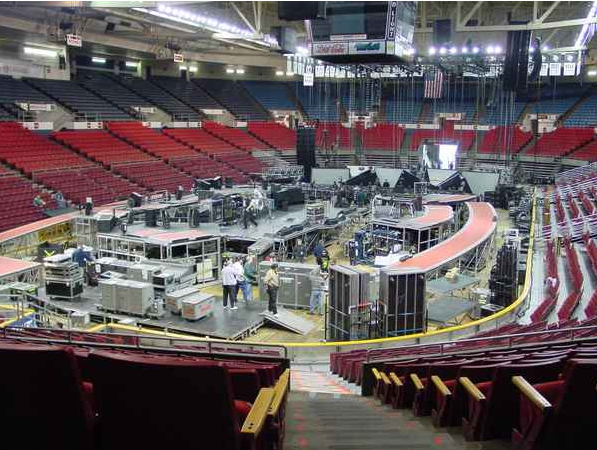
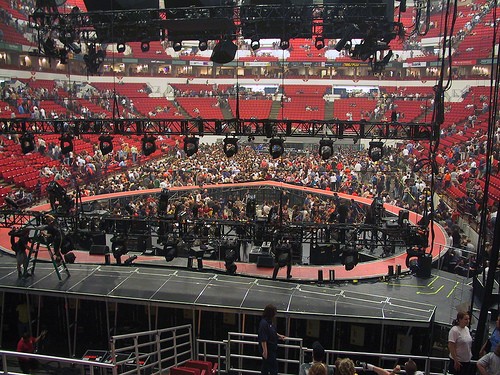
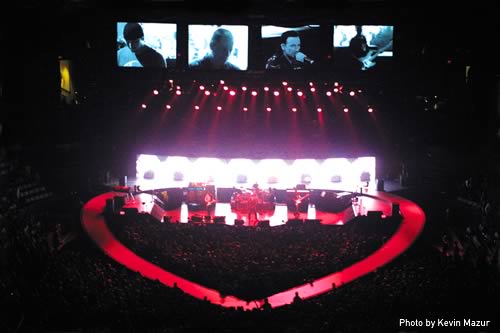
SET LIST
Elevation
Beautiful Day
Until The End Of The World
New Year’s Day
Out Of Control
Sunday Bloody Sunday
Stuck In A Moment You Can’t Get Out Of,
Kite
Angel Of Harlem
Please
Bad
Where The Streets Have No Name
I Still Haven’t Found What I’m Looking For
Pride (In The Name Of Love)
Encore:
Bullet The Blue Sky
What’s Going On
New York
One
When Will I See You Again
Walk On
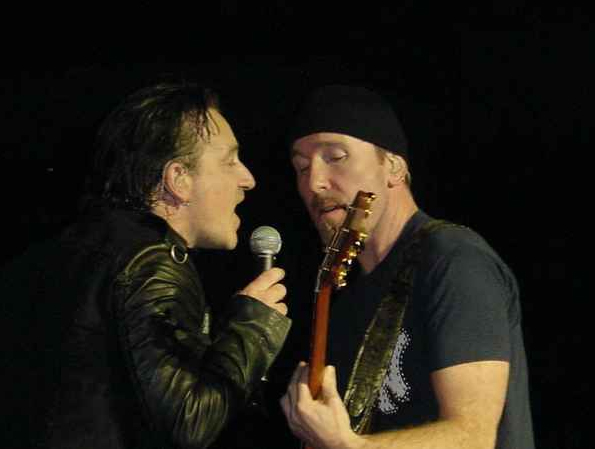
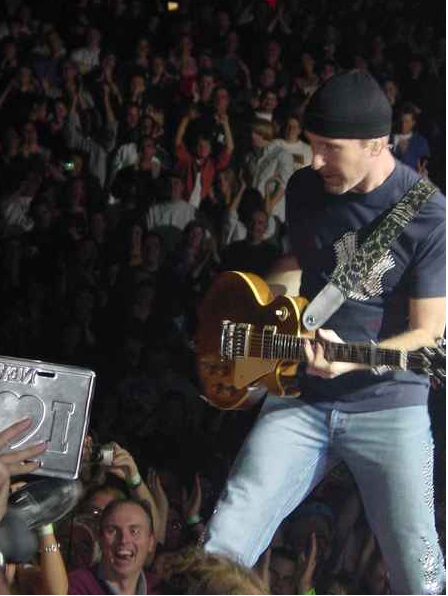
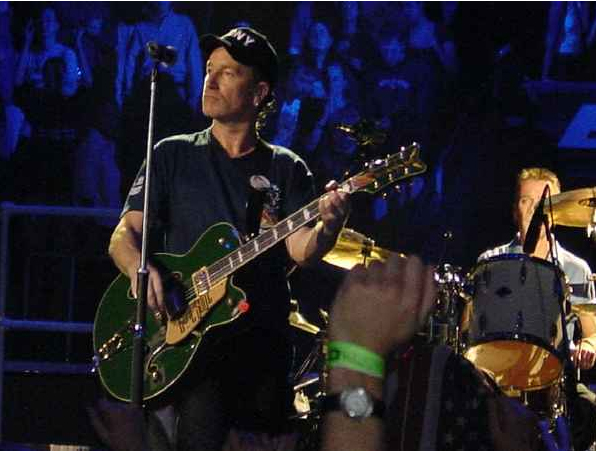
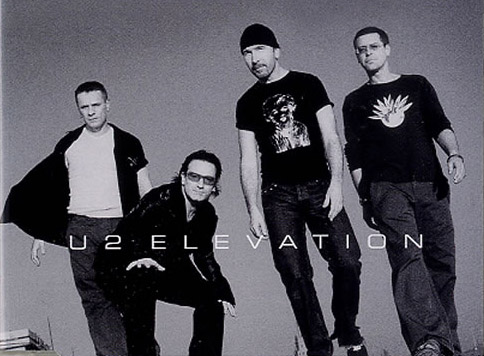
THE BAND
Bono [aka Paul Hewson] (vocals)
The Edge [aka David Evans] (guitar)
Adam Clayton (bass)
Larry Mullen, Jr. (drums)
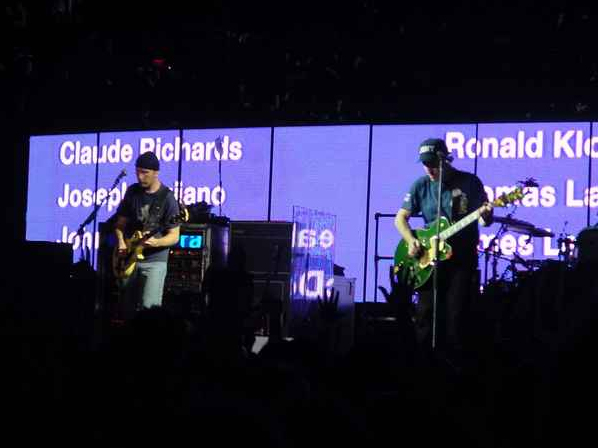
U2 - Elevation Tour - Boston November 26, 2001
U2 - All That You Can't Leave Behind (full album)
CONCERT MEMORIES:
*Note: if you were there and would like to share your memories, pictures or tape please send it info@rirocks.net
Remarks:
A fan gives Bono an INXS t-shirt during ‘Stuck In A Moment,’ which Bono gladly holds up to show the crowd. During ‘Bad,’ Bono climbs up into the lower level behind the stage. He talks with a little girl who is rendered speechless aside from being able to tell Bono ‘I love you.
Media Review:
Providence Journal
U2 Lets Spirituality, Optimism Flow
by Vaughn Watson
PROVIDENCE — In the shakiness of terrorist hijackings and anthrax threats, the importance of rock ‘n’ roll runs a populist course
The optimism in songs, and their performance in a concert — with a sellout crowd singing along — cycles from the audience to the performer on stage. It is passed along like a common secret; its significance grows bolder the more each individual believes in its potency. It’s a spiritual undergoing, almost religious if you’re game.
U2’s concert last night at the Dunkin’ Donuts Center was steeped in the news of the day, inevitably so, empowering because the band let the spirituality through.
Bono, the frontman, re-interpreted “Wide Awake in America” with a prayer: “That these times we’re living,” he said, “that they pass quickly.”
“Take it to the church,” he said before “Pride (In the Name of Love), a testimonial to the idealism of Martin Luther King Jr. and a reminder of a goal of unanimity not yet realized.
U2 wants us to unlearn. Yet an era of heightened nationalism presents a challenge for this band, for music satirizing America’s tricky trouble spots, racial profiling, gender and religious inequity — divisive issues before Sept. 11 linked us and left us, for this quick moment, with a softer regard for race, ethnicity or gender
In that perfect world, “Beautiful Day” is the ballad to wake up to in the morning. “It’s a beautiful day,” Bono sang — his voice well worn but caramel-like — “don’t let it get away.”
In these new times, “Kite” is about learning to let go. “I’m not afraid to die,” Bono sang, “I’m not afraid to live. — Who’s to say where the wind will take you? Who’s to say what it is will break you? I don’t know, which way the wind will blow.”
Lead guitarist The Edge wore a Yankees T-shirt, one of many gestures to the nation’s grieving heartland. Bono stripped off his leather jacket and, turning it inside out, revealed an American flag print. His T-shirt read: FDNY. I saw just two flags in the audience, and scanned the crowd for one during “Sunday Bloody Sunday,” wondered why I’d done so, then was reminded when I heard the lyrics: “How long must we sing this song.”
At the edge of the stage, the woman with the flag passed it to Bono. He clutched it. The crowd went wild. “Sunday bloody Sunday,” Bono sang. “I’m so sick of it.” It was too cinematic. But that we’ve heard before, and for arena rock this grand, the flaws were slight. The band played smoothly: don’t search for tension in their instruments or presentation. It is in what Bono sings and what he says.
“I just wanted you to know how proud, happy, humbled we are to be in the United States at this time,” he said from the stage. Then the less subtle way: “Osama bin Laden can kiss my white Irish ass.”
The criticism against U2’s recent songs is that they lacked the progressivism and are less topical than the early ones. What’s more topical, though, than living; and more, recognizing the significance in that?